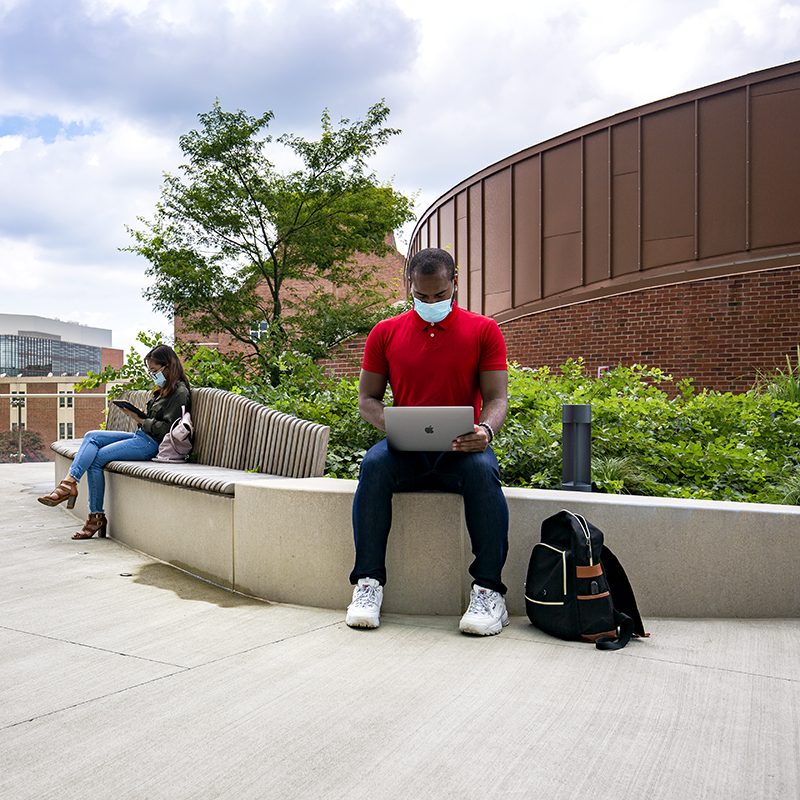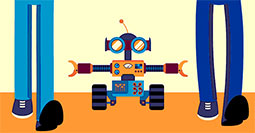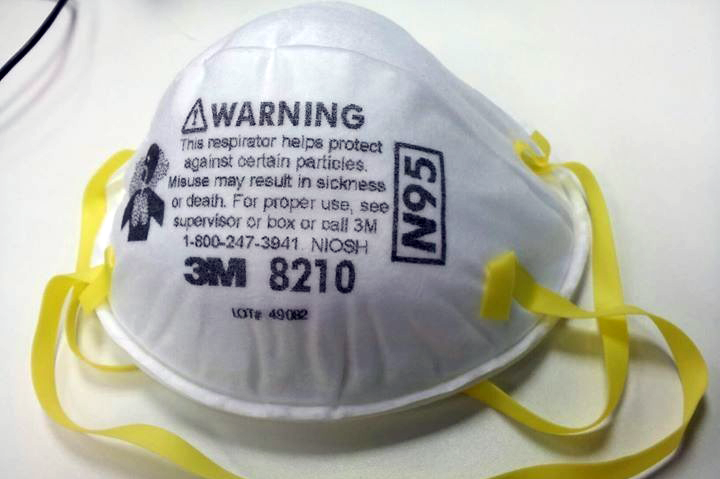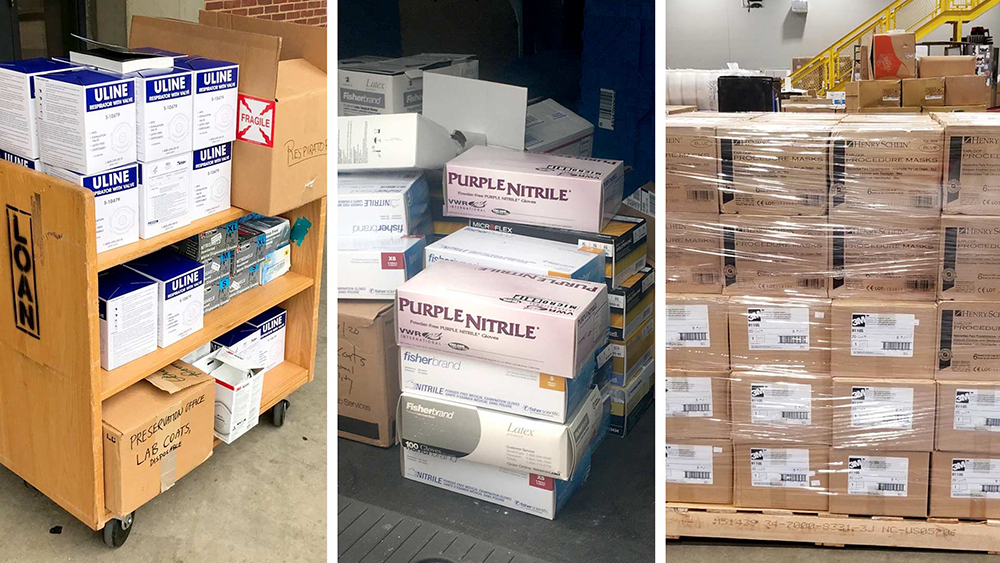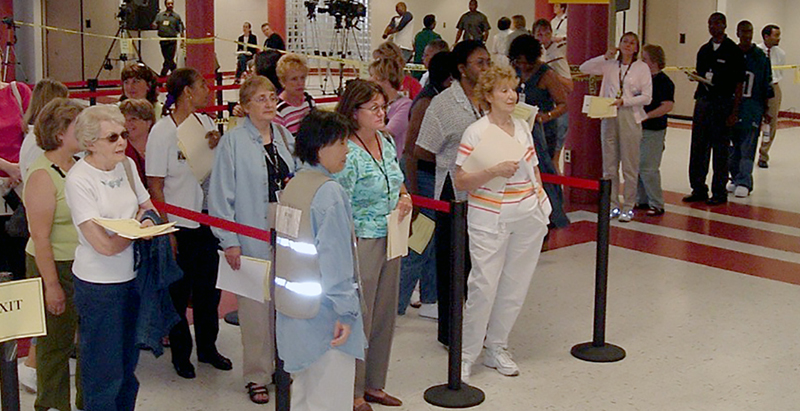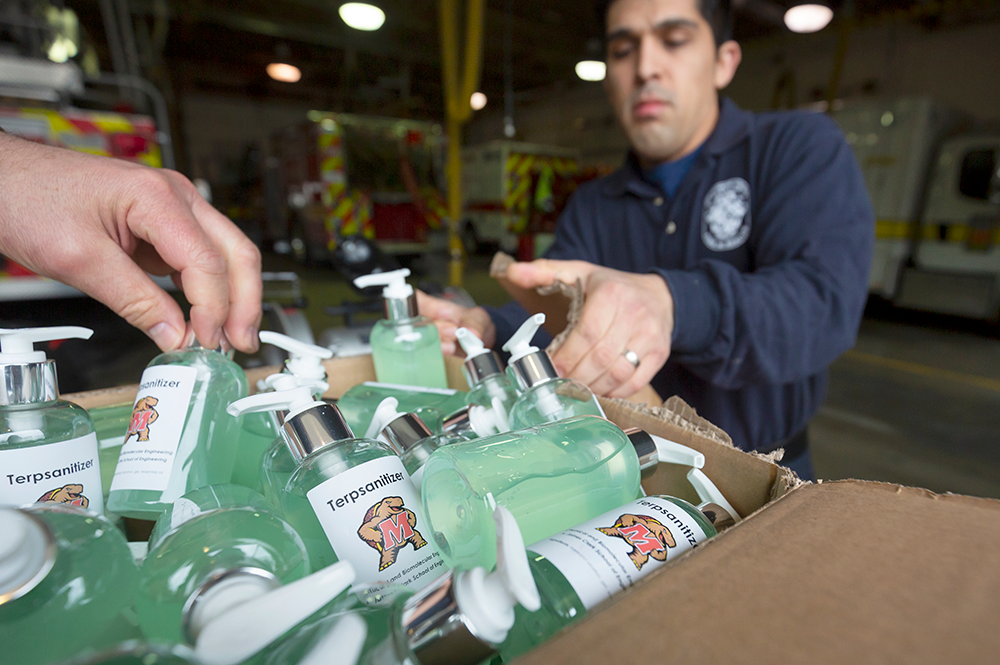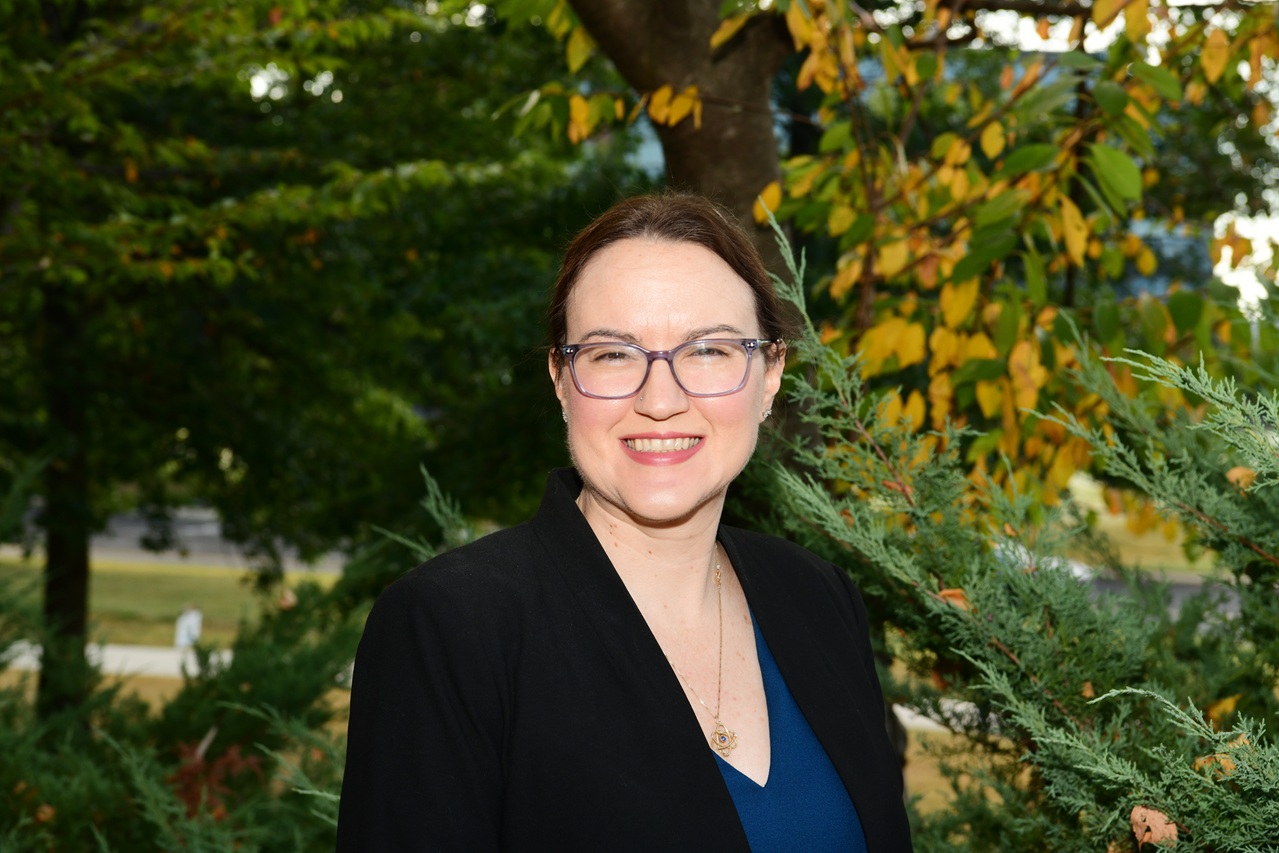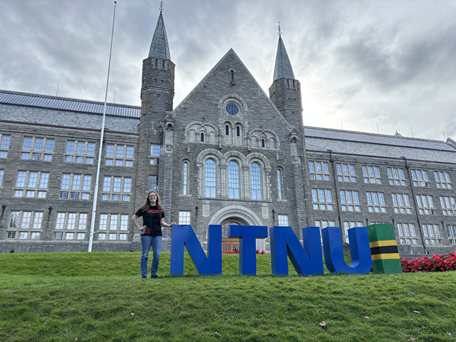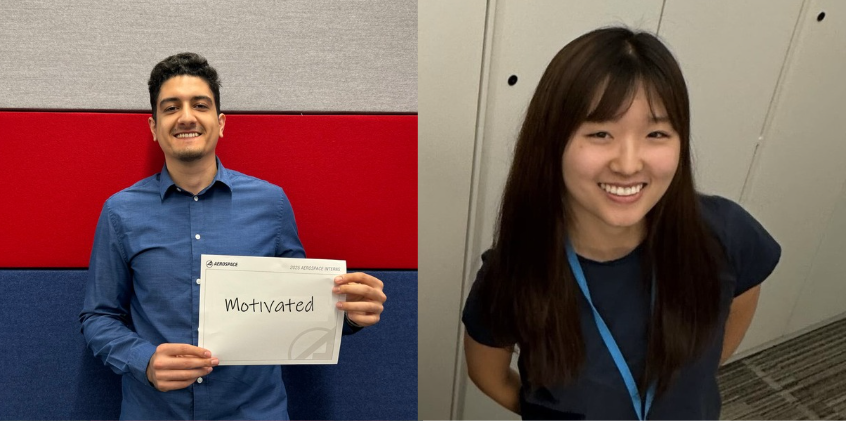News Story
COVID-19 Engineering Solutions: In the News
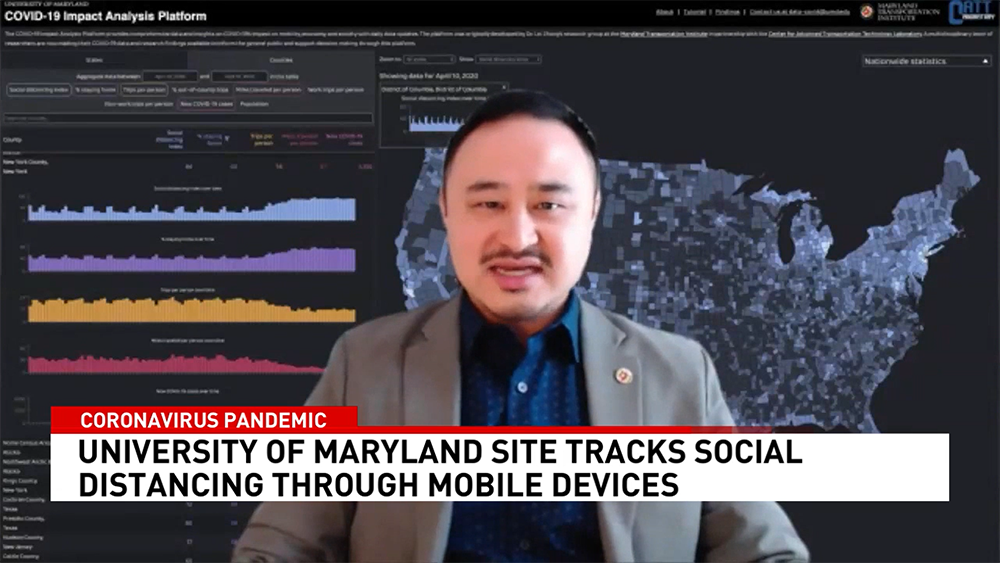
In response to the novel coronavirus pandemic (COVID-19), researchers at the University of Maryland’s A. James Clark School of Engineering are working tirelessly to create solutions and pool resources in efforts to minimize the spread of the disease, provide critical aid to health care workers and their patients, and monitor the impact of social distancing and travel restrictions. Learn more about these efforts.
Select media coverage of the Clark Schools response efforts includes:
COVID-19 Spread at Presidential Debates
Experts from engineering and public health partner on recommendations to the Commission on Presidential Debates for helping to prevent the spread of COVID-19 at the 2020 presidential debates. They say that airborne transmission of the coronavirus at the debates can be reduced with three items from a local home improvement store.
- Washington Examiner, Candidates warned debate stage, hall not safe from COVID, October 20
- Washington Examiner, University has $170 solution to Trump-Biden debate COVID fears, October 8
- New York Times, Plexiglass Barriers Won’t Stop the Virus at the Debate, Experts Warn, October 7
- NPR, Beyond Plexiglass: Scientists Say This Simple Solution Could Keep VP Debate Safer, October 7
- NBC News, Plexiglass dividers at the VP debate won't do much, experts say, October 7
Aerosol Study for Music Activities
UMD joins a number of organizations to study the effects of COVID-19 on performing arts classrooms and venues by examining aerosol rates produced by instrumentalists, vocalists, and even actors and how quickly those aerosol rates accumulate in a space.
- WFPL, Kentucky Music Educators Try To Make In-Person Rehearsal Work, Even In A Pandemic, September 11
- The Forward, How to sing safely on the High Holidays — it’s not easy, August 30
- The Post and Courier Greenville, Clemson band director helps launch national safety study on musical instruments, August 14
- KCRW, Is Singing Together Safe In The Era Of Coronavirus? Not Really, Experts Say, August 10
- IlliniNow, Will The Show Still Go On For College Marching Bands During the COVID-19 Era?, August 3
- Science, Is it safe to strike up the band in a time of coronavirus?, July 17
- Pittsburgh Post-Gazette, Band camp will go on, but will the halftime show?, July 15
- Tampa Bay Times, Marching bands aren’t sure how to handle the pandemic. So they commissioned two studies involving spit., June 26
Understanding Spread via HVAC Systems
Clark School faculty provide expert commentary on how air conditioning and air filtration systems may be a factor in the spread of COVID-19.
- Baltimore Sun, Spurred by coronavirus pandemic, Westminster-based Knorr Brake Company devises air filtration system for train cars, September 4
- New York Times, What Happens to Viral Particles on the Subway, August 10
- Erie News Now, A Connection Between Coronavirus and Air Conditioners?, July 17
- TODAY Show, Air Conditioners Spreading Coronavirus?, July 16
Big Data Analysis of Human Mobility Behavior
UMD researchers are providing a real-time picture of where people are traveling, how their behaviors can affect the spread of COVID-19, and how the pandemic is impacting the economy. They have made their data and findings, which are updated daily, available to the public in order to help officials make informed decisions.
- Wall Street Journal, The Failed Experiment of COVID Lockdowns, September 1
- Washington Post, Beaches, bars, boredom: Why infections are climbing again in D.C., Maryland and Virginia, July 25
- WTTG, University of Maryland researchers tracking summer travel say stay put, July 17
- CNN, Is the summer road trip spreading the coronavirus?, July 10
- Washington Post, U.S. traffic has rebounded to about 90 percent of pre-pandemic levels, analysts say, June 19
- Capital Gazette, Prince George’s County ready to start reopening Monday, with ability to test 9,000 a week, May 28
- Forbes, Out-Of-State Trips Rose By 22% After Lockdowns Started Lifting, May 11
- Washington Post, Smartphone data shows out-of-state visitors flocked to Georgia as restaurants and other businesses reopened, May 7
- Good Morning America, More states ease restrictions on restaurants, theaters and retail, May 1
- Washington Post, ‘Quarantine fatigue’ continues for second week, showing a worrisome trend, researchers say, April 28
- The New York Times, ‘Quarantine Fatigue’ Has More People Going Outside, April 27
- USA Today, Is quarantine fatigue here? Americans are leaving their homes more and more, cell data shows, April 27
- TODAY Show, Americans with ‘quarantine fatigue’ are heading out of the house, research says, April 27
- Cheddar TV, Quarantine Fatigue as the Weather Heats Up, April 27
- New York Post, Americans may be suffering ‘quarantine fatigue,’ going out more, study says, April 26
- Washington Post, ‘Quarantine fatigue’: Researchers find more Americans venturing out against coronavirus stay-at-home orders, April 25
- The Hill, New platform shows how states are adhering to social distancing measures, April 15
- Washington Examiner, Just 35% staying at home, tiny 4.3% changed ‘mobility behavior’ to fight virus, April 14
- ABC7, New index shows who is best at social distancing; See how where you live ranks, April 14
- WTOP, Are Americans staying at home? U.Md. researchers say many are ignoring orders, April 14
Engineering Kits
When COVID necessitated the cancellation of in-person summer camps for middle and high school-aged students, the Women in Engineering Program came up with a hands-on solution to continue introducing young learners to engineering.
- NBC4 Washington, University of Maryland's Women in Engineering Give Local Students Engineering Kits, August 27
- Prince George's Community Television, CTV News 8/26/20, August 26
Mobile Testing Booths
UMD researchers working in collaboration with Johns Hopkins University and the Baltimore City Health Department are developing a low-cost, rapidly deployable mobile testing booth, similar to a traditional phone booth in both size and shape.
- WJZ, Mobile COVID-19 Testing Booths Help Health Care Providers Test Patients Without Risking Own Health, June 15
UV Irradiation
Some scientists hope a decades-old technology could zap pathogens out of the air in stores, restaurants, and classrooms, potentially playing a key role in containing further spread of the infection.
- New York Times, Scientists Consider Indoor Ultraviolet Light to Zap Coronavirus in the Air, May 7
Terpsanitizer
Engineering faculty and students use their lab capabilities to produce hand sanitizer for area first responders, as well as UMD staff and students on campus.
- WJZ, University Of Maryland Professor, Students Make ‘Terp Sanitizer’ Amid Coronavirus Pandemic, April 16
- WUSA9, UMD engineering students making 'TERPsanitizer' to fight coronavirus spread, April 1
Incubator-Hatched Solutions
TechPort, a UMD-supported business incubator in St. Mary’s County, is working to produce face shields, breast pumps-turned-ventilators, and a device to sterilize PPE using heat. The efforts include Alex Scott, a 2018 graduate of the Clark School.
- WYPR, Dust Off That Old Breast Pump - It Might Help In The Fight Against COVID-19, April 13
- New York Post, Engineers convert breast pumps into ventilators to combat coronavirus shortages, April 8
- WUSA9, Maryland engineers working to turn breast pumps into ventilators, April 6
- NBC4 Washington, University of Maryland Tech Port Developing Oven to Sterilize PPE, April 4
Protection Collections for Local Health Care Workers
Units across the Clark School and UMD collect and donate supplies to local health care providers facing looming equipment shortages.
- WTOP, University of Maryland lab supplies donated to local hospitals, April 11
- Baltimore Sun, University of Maryland providing masks, personal protective equipment to hospitals, March 30
Read more about Clark School responses to COVID-19 here.
Published April 27, 2020
